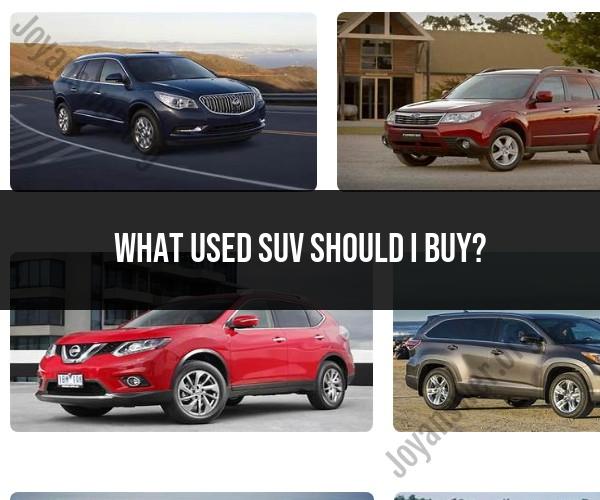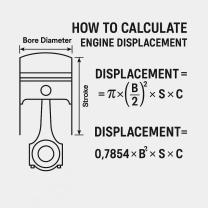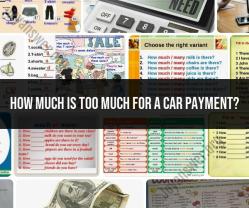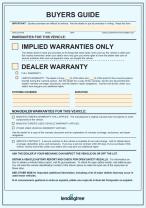What used SUV should I buy?
Deciding on a used SUV can be a smart choice, as it often allows you to get more vehicle for your money compared to buying new. However, choosing the right used SUV involves careful consideration and research. Here are some tips and recommendations to help you decide on the best-used SUV for your needs:
Set a Budget: Determine how much you're willing to spend on a used SUV, including the purchase price, taxes, registration, and potential repairs or upgrades.
Define Your Needs:
- Size: Decide on the size of the SUV based on your passenger and cargo requirements.
- Purpose: Consider how you'll use the SUV. Is it for daily commuting, family trips, off-roading, or towing?
- Fuel Efficiency: Evaluate your driving habits and choose an SUV with a fuel economy that suits your needs.
Research Reliability: Look for SUV models known for their reliability and durability. Research consumer reviews, reliability ratings, and vehicle history reports to identify dependable options.
Mileage: Consider the mileage of the used SUV. Lower mileage generally indicates less wear and tear, but higher mileage vehicles can still be reliable if well-maintained.
Age: While older models can offer cost savings, balance this with the potential for higher maintenance and repair costs. Aim for a used SUV that strikes a good balance between age and condition.
Vehicle History Report: Obtain a vehicle history report using the vehicle identification number (VIN). This report can reveal important information about the SUV's past, including accidents, title status, and maintenance records.
Inspection: Have a trusted mechanic inspect the used SUV before purchasing it. They can identify any existing or potential issues that might not be apparent during a test drive.
Budget for Repairs: Be prepared for potential repairs or maintenance after purchase. Used vehicles may require servicing or replacement of parts, so factor these costs into your budget.
Safety Features: Look for used SUVs equipped with important safety features such as airbags, stability control, antilock brakes, and modern safety technology if available.
Fuel Efficiency: If fuel economy is a concern, research the SUV's fuel efficiency and consider more fuel-efficient options.
Resale Value: Check the resale value of the used SUV model you're considering if you plan to sell or trade it in the future.
Brand Reputation: Consider the reputation of the automaker for producing reliable, high-quality SUVs.
Towing Capacity: If you plan to tow trailers or boats, check the SUV's towing capacity to ensure it meets your needs.
Test Drive: Always take the used SUV for a test drive to assess its handling, comfort, and condition.
Ownership Costs: Consider the total cost of ownership, including maintenance, repairs, insurance, and fuel expenses, over the long term.
Negotiate: Be prepared to negotiate the price with the seller, whether it's a private seller or a dealership.
Vehicle History: Ask the seller for maintenance and service records. A well-documented history can provide confidence in the SUV's care.
Warranty Options: Some used SUVs may still have part of their original warranty remaining. Additionally, consider purchasing an extended warranty for added peace of mind.
Compare Multiple Options: Make a list of used SUVs that meet your criteria and compare them based on the factors mentioned above.
Consider Certified Pre-Owned (CPO): CPO programs offer used vehicles that have undergone thorough inspections and come with manufacturer-backed warranties, providing additional peace of mind.
Ultimately, the best-used SUV for you will align with your specific needs and budget. Careful research, inspection, and consideration of the factors mentioned above will help you make an informed decision and find a used SUV that suits your requirements.
Buying a Used SUV: Tips and Recommendations
Buying a used SUV can be a great way to save money and get a reliable vehicle. However, it is important to do your research and be aware of the potential risks involved. Here are some tips and recommendations for buying a used SUV:
- Set a budget. Decide how much you are willing to spend on a used SUV. Keep in mind that you will also need to factor in the cost of insurance, registration, and maintenance.
- Do your research. Once you have a budget in mind, start researching different SUV models. Consider the size, features, and fuel economy of different vehicles. You can read reviews online and talk to other SUV owners to get their insights.
- Get a pre-purchase inspection. This is the most important step in the process. Take the SUV to a qualified mechanic for a pre-purchase inspection. This will help you to identify any potential problems with the vehicle.
- Negotiate the price. Once you have found an SUV that you like and have gotten a pre-purchase inspection, don't be afraid to negotiate the price with the seller.
Navigating the Used Car Market: Guide to Choosing a Pre-Owned SUV
The used car market can be daunting, but it doesn't have to be. Here are some tips for navigating the market and choosing the right pre-owned SUV:
- Start by considering your needs. What do you need your SUV for? How many seats do you need? How much cargo space do you need? What kind of fuel economy are you looking for? Once you know your needs, you can start narrowing down your options.
- Do your research. Once you have a general idea of what you're looking for, start researching specific SUV models. Read reviews, compare prices, and get input from other owners.
- Shop around. Don't just buy the first SUV you see. Take some time to shop around and compare different vehicles. You may be able to find a better deal at another dealership or from a private seller.
- Get a pre-purchase inspection. This is an important step in buying any used car, but it's especially important for SUVs. A pre-purchase inspection can reveal any potential problems with the vehicle before you buy it.
Your Next Ride: Factors to Consider When Buying a Used SUV
Here are some of the key factors to consider when buying a used SUV:
- Condition: Inspect the vehicle carefully for any signs of damage or wear and tear. Pay attention to the paint, tires, interior, and engine.
- Mileage: Consider the mileage on the vehicle. A higher mileage SUV may be more likely to have problems.
- Maintenance history: Ask the seller for the vehicle's maintenance history. This will give you an idea of how well the vehicle has been cared for.
- Features: Decide which features are important to you. Some common features include all-wheel drive, a sunroof, a heated steering wheel, and a premium sound system.
- Price: Set a budget for yourself and stick to it. Keep in mind that you may be able to negotiate the price with the seller.
By following these tips and recommendations, you can find a reliable and affordable used SUV.













